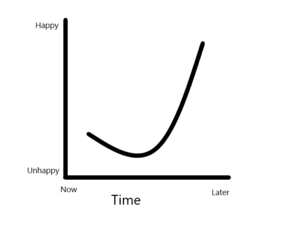Flying Together
Flying Together
Once a hunter cast a net over a flock of birds busy pecking at grains. Flustered, the birds scrambled to escape in every direction—but in vain. Until a wise leader amongst them said, ‘We can still escape. Stop trying to fly in all directions. All of you fly in this direction,’ as he pointed up. ‘One, two, three!’ As ordered by their leader, the birds took off together. And they took the net with them.
How many birds needed to move upwards in order for this escape plan to work? ALL. Could any single bird have managed to escape alone? Absolutely not.
There is an important lesson about teamwork in this kids’ story. Think about the laggards in your team. A team is only as strong as the weakest person.
By definition, humans make mistakes (otherwise we wouldn’t be humans, we would be God). We’re in this together.
Even if they don’t have the self-confidence to say, ‘today I’m going to do the best job,’ I don’t believe anyone intentionally comes to work saying, ‘today I’m going to do a terrible job.’
We can all benefit from encouragement and upliftment.
Catch 3 people doing something right everyday (and I don’t mean false praises). Challenge yourself to do this for a month. This is the posture of good-finding. Blaming undoes us, whereas good-finding nourishes us (both the person on the giving as well as receiving end).
Pandurang Shastri Athavale (my friend, philosopher, and guide) puts it very simply: ‘The other is not another, he is my Divine brother.’
How can we all fly upwards TOGETHER (because we NEED to fly together)?

